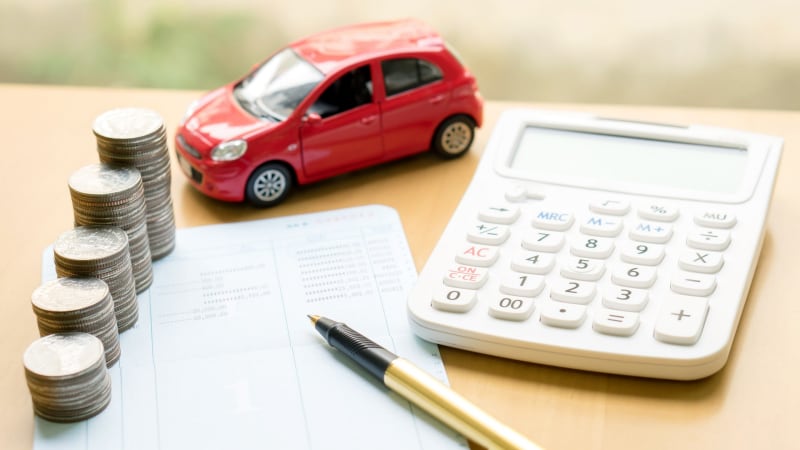Can you lower your car insurance rates?

Owning a car might be essential for you to go to work, drive to school or carpool the kids to karate class, but at the same time, it can be an expensive necessity. While it may be hard to control some costs of car ownership, like fuel prices, you may be able to lower your insurance rate to try and alleviate your car's overall impact on your budget. Let’s learn what factors tend to impact your car insurance rate, and what you might be able to do to lower it.
What affects car insurance rates?
Insurance companies use details about your financial health and the type of car you’re looking to insure to calculate what your car insurance rate might be. Some of those details include:
- Your driving record: Your history on the road tends to indicate the kind of driver you are and your likelihood of being involved in an accident or getting a traffic violation. If you have a consistent history of safe driving, you may be viewed as a driver with less risk and have a better chance of securing a lower insurance rate.
- Your credit score: Depending on your state of residency, insurance companies typically use your credit information as another risk factor. Maintaining a healthy credit score (and good financial health overall) could be correlated with a higher level of responsibility in other areas of life as well, including as a driver. This may help your case when trying to secure a lower car insurance rate.
- Your demographics: Your demographics may be used by insurers to assess your safety risk on the road as a driver. If you’ve ever insured a teenage child, you may already know that insurance rates tend to be higher for younger drivers with less driving experience, as they tend to be more prone to accidents.
- Your car’s make and model: The type of car you’re insuring can play a significant role in how much you pay for your insurance premium. For instance, insuring an exotic car may come with a higher premium due to costlier repairs and rare, made-to-order parts. On the flip side, you may find that insuring a used car that's more commonly seen on the road could tend to be a little less expensive.
- Your purchased coverage: You may expect to be quoted a higher or lower auto insurance rate depending on the amount of coverage you elect to buy. Even though comprehensive and collision policies tend to cost more, they typically also cover a wider range of injury and damage costs in the unfortunate event that your car does end up in an accident.
5 ways to help lower car insurance rates
The cost of owning a car can add up quickly. Between the necessary cost of gassing up and maintaining your car, it’s understandable you may want to find ways to cut costs elsewhere by lowering your insurance premium payment. While you’re shopping for your insurance policy, you may be able to lower your expected insurance rate in a few ways. For instance, having a good driving record can be one of the most reliable ways to help you keep your insurance costs down. Other potential ways to lower your insurance rates include:
Increasing your car insurance deductible
Paying a higher deductible before your policy kicks in is one way to lower your insurance cost. According to the Insurance Information Institute, increasing your deductible from $200 to $500 could reduce your collision and comprehensive coverage cost by as much as 30% in the long term.
Shopping around
Your quotes usually vary between different insurance companies as different insurers may calculate car insurance rates in different ways. Therefore, it may benefit you to shop around to see where you get the best rate for you. You may also want to consider looking online for a car insurance comparison tool that might make it easier to compare how coverages, limits and deductibles differ between companies.
Maintaining a healthy credit score
Insurance companies often use your credit score as a way to gauge your general responsibility and the possible risk you pose to them financially. Making timely payments and lowering your credit utilization ratio are both helpful ways to start improving your credit health. You might be able to do this by paying more than your minimum monthly payment while lowering or maintaining the amount of credit you use.
Compare insurance costs before purchasing your car
As you may know now, the make and model of your car is something insurers typically look at as they calculate your insurance rate. Your car’s price, its repair costs and its overall safety rating are all factors that affect your insurance premium. Shopping for an affordable car with a high safety rating could help you get lower car insurance rates before you even drive off the lot.
Look into group insurance
Depending on the insurance company, they may offer insurance rate reductions if you get insurance through a group plan from employers, professional business and alumni groups or from other associations. While this may be uncommon, you might want to check with your employer to see if group insurance is something you can benefit from.
Common auto insurance discounts
If you are shopping for a new auto insurance policy with a more favorable rate, you may be able to lower your insurance premium by utilizing of an auto insurance discount. While the discounts available between insurers may vary, most companies will likely have several options available, some of which you might qualify for. In fact, you might even be missing out on potential savings right now without knowing it. Depending on your insurer, you could be eligible for an auto insurance discount if you:
- Are a current student or recent graduate with good grades.
- Are an active, retired or reserved member of the military.
- Have advanced safety or anti-theft features installed in your car.
- Bundle your car insurance with your home insurance.
- Enroll in and complete certain drivers' education courses, such as a defensive driving class.
- Are a long-term customer of your auto insurance company.
In summary
In the end, learning how to lower car insurance rates is largely a matter of learning what factors can impact your insurance premiums, like your driving history or the make and model of the vehicle, and then doing what you can to make them more favorable. For instance, if you’re worried about insurance costs for your next vehicle, you might want to look into cars with high safety ratings as insurers will typically offer better rates on these models. Additionally, you may be able to lower your car insurance rates even further by looking into common auto insurance discounts that you may qualify for. Inquire with your auto insurer to learn more.



